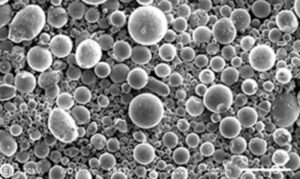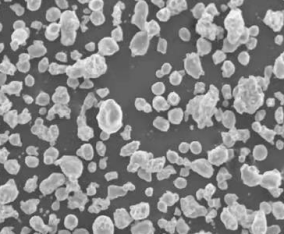Overview of 7075 Aluminium Alloy Powder
7075 aluminium alloy powder is a strong, hard-wearing aluminium alloy powder commonly used in high-stress aerospace and defence applications. It has high strength-to-density ratio, good fatigue strength, average machinability, and excellent corrosion resistance.
Key properties and applications of 7075 aluminium alloy powder:
| Properties | Details |
|---|---|
| Composition | Aluminium, zinc, magnesium, copper, chromium, iron, silicon, manganese, titanium, other elements |
| Strength | Very high strength |
| Hardness | High hardness |
| Density | Low density (2.81 g/cm3) |
| Corrosion Resistance | Excellent in various environments |
| Major Applications | Aircraft structures, defence equipment, marine fittings, high-stress parts |
7075 aluminium gets its high strength from precipitation hardening heat treatment. It is weldable but loses some strength during welding. It has lower fracture toughness than other aluminium alloys.
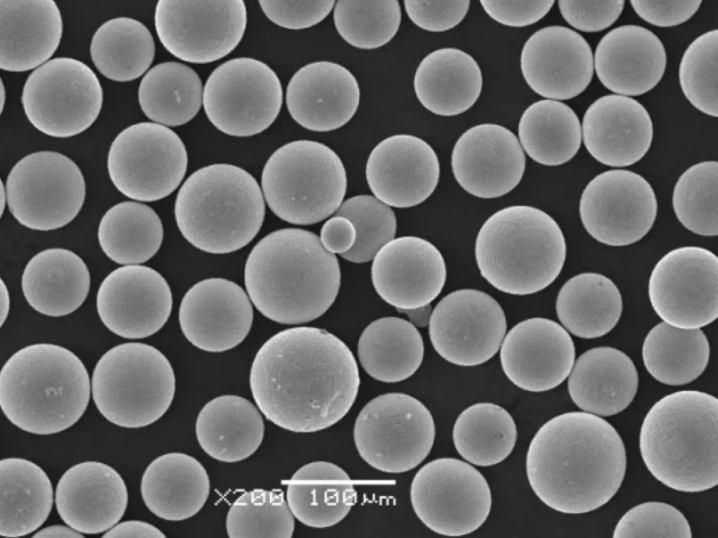
Types of 7075 Aluminium Alloy Powder
7075 aluminium alloy powder is available in various types:
| Type | Characteristics |
|---|---|
| Atomized powder | Spherical powder produced by atomization process, good flowability |
| Gas atomized powder | Made by inert gas atomization, very spherical, high purity |
| Water atomized powder | Irregular shape, high oxygen content |
| Plasma atomized powder | Very spherical, smooth surface, high purity |
| Milled powder | Irregular shape from mechanical milling |
Gas atomized and plasma atomized powders have more uniform particle size distribution and shape ideal for additive manufacturing. Water atomized and milled powder is cheaper but has less sphericity.
Applications and Uses of 7075 Aluminium Powder
Key applications of 7075 aluminium alloy powder include:
| Application | Uses |
|---|---|
| Aerospace | Aircraft fuselages, wings, fittings, fasteners, gears, valves |
| Defence | Armoured vehicles, weapons, protective equipment |
| Automotive | Wheels, transmission parts, pistons, valves, drivetrain |
| Marine | Boat hulls, fittings, propellers, deck hardware |
| Additive manufacturing | 3D printing of complex, lightweight parts |
| Machining | High-speed CNC machining into complex shapes |
7075’s high strength, hardness and fatigue resistance allow it to withstand heavy loads in structural parts for aircraft, vehicles, boats etc. It resists corrosion in marine environments. Its lightweight properties provide fuel savings. It can be 3D printed into complex shapes not possible with casting or machining.
Specifications and Design Standards for 7075 Alloy Powder
Key specifications and design standards for 7075 aluminium alloy powder include:
| Specification | Details |
|---|---|
| Alloying elements | Zinc 5.1-6.1%, Magnesium 2.1-2.9%, Copper 1.2-2.0%, Iron 0.5% max, Si 0.4% max, Mn 0.3% max |
| Density | 2.81 g/cm3 |
| Melting point | Approx. 475°C |
| Strength | Tensile 510-540 MPa, Yield strength 430-505 MPa |
| Hardness | Brinell 150 |
| Elongation | 11% |
| Shear strength | 330 MPa |
| Fatigue strength | 159 MPa |
| Thermal conductivity | 130 W/m-K |
| Designation | UNS A97075, Aluminium Association 7075, ISO Al Zn5.5MgCu |
| Applicable standards | AMS 4045, AMS 4127, ASTM B918, ISO 16220, NF L 16-720 |
Key specifications like alloy composition, mechanical properties, design standards should be reviewed to ensure procurement of high quality 7075 powder for production use.
Suppliers and Pricing of 7075 Aluminium Alloy Powder
Some leading global suppliers of 7075 aluminium alloy powder include:
| Supplier | Description | Price Range |
|---|---|---|
| Alpoco | Gas atomized, high purity | $50-$150/kg |
| Rusal | Plasma atomized, for 3D printing | $75-$250/kg |
| Valimet Inc. | Different size distributions | $30-$100/kg |
| Makin Metal Powders | Water atomized, economic | $20-$60/kg |
| Sandvik | Custom alloys and particle sizes | $100-$500/kg |
Prices vary based on powder shape, size range, gas atomization, specialty alloys, and order volume. Small lab quantities of specialty powder can cost over $500/kg. Bulk volumes of water atomized powder can cost as low as $20/kg.
Installation, Operation and Maintenance of 7075 Powder Production Equipment
Key aspects for installation, operation and maintenance for 7075 aluminium alloy powder production equipment:
| Activity | Guidelines |
|---|---|
| Installation | Ensure proper grounding, vacuum lines, water cooling, gas lines, safety devices, ventilation. Follow OEM manuals. |
| Operation | Operate within recommended parameters of temperature, pressure, flow rates. Ensure gas purity, proper feeds. |
| Maintenance | Regularly inspect and replace wear items like nozzles, o-rings, valves. Check drive motors and pumps. Monitor analyzers. |
| Powder handling | Ensure proper powder sieving, storage in sealed containers, movement minimizes oxygen exposure. |
| Safety | Wear PPE, ensure gas line integrity, establish SOPs for pressurized systems. Provide fire suppression. |
| Training | Train operators on startup, shutdown, safety, troubleshooting. Emphasize powder flammability risks. |
Proper installation, operation and maintenance as per OEM guidelines ensures maximum powder production, quality and safety. Personnel training is key.
How to Select 7075 Aluminium Powder Suppliers
Key factors in selecting suppliers of 7075 aluminium alloy powder:
| Parameter | Guidelines |
|---|---|
| Powder manufacturing process | Match process like gas atomization to application needs |
| Composition compliance | Alloy composition meets required standards |
| Particle size distribution | Distribution meets product requirements |
| Sphericity and flowability | Powder shape and flow properties suitable for usage |
| Lot testing data | Review test reports for critical powder properties |
| Sampling | Ask for samples to conduct evaluation tests |
| Certifications | Manufacturer should have ISO 9001 certification |
| R&D capabilities | Custom alloy development, enhancements |
| Customer service | Responsiveness to inquiries, proactive updates |
| Production capacity | Ability to fulfill volume requirements |
| Pricing | Competitive pricing for product specifications |
| Terms and lead time | Acceptable payment terms and lead time |
Carefully evaluating multiple suppliers on these parameters ensures selection of the optimal 7075 powder provider.
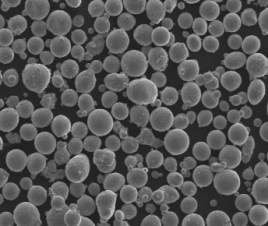
Pros and Cons of 7075 Aluminium Alloy Powder
| Advantages | Disadvantages |
|---|---|
| Very high strength for low weight | Lower fracture toughness than other alloys |
| Excellent fatigue strength | Susceptible to stress corrosion cracking |
| Good machinability and corrosion resistance | Difficult to weld, requires special procedures |
| Used for highly stressed aerospace parts | Expensive compared to lower strength alloys |
| Can be precipitation hardened to high strengths | Powder production requires controlled processes |
| Can be 3D printed into complex shapes | Sensitive to quenching rate during heat treatment |
Key advantages of 7075 powder like high strength and fatigue resistance make it suitable for aircraft and defence applications despite disadvantages like lower toughness and weldability.
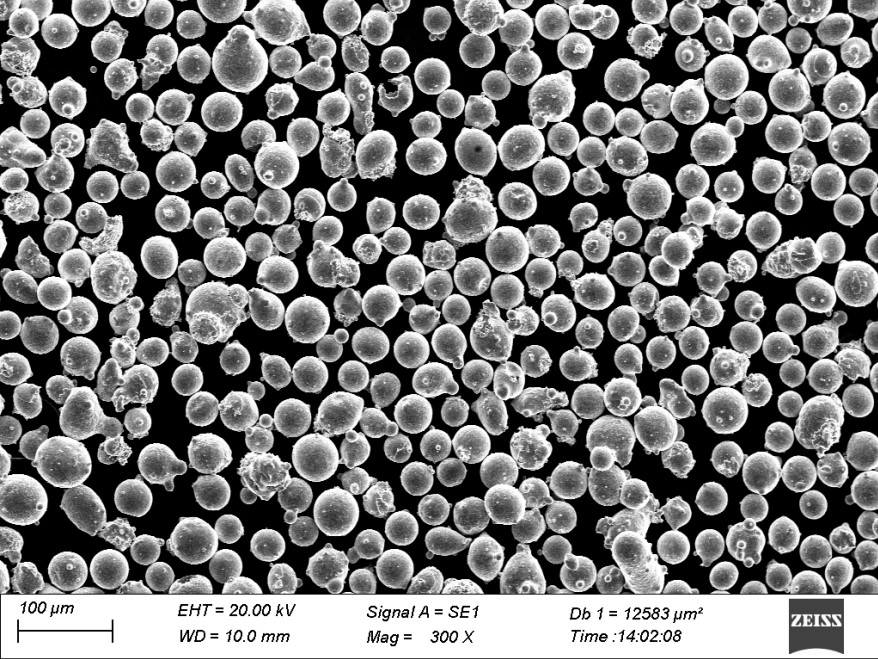
FAQ
Q: What is 7075 aluminium alloy powder used for?
A: 7075 aluminium powder is commonly used to make high-strength structural parts for aircraft, defence equipment, and other critical applications where strength and fatigue resistance are paramount.
Q: What manufacturing processes use 7075 aluminium powder?
A: Key processes using 7075 powder include additive manufacturing/3D printing, metal injection molding, spray deposition, powder forging and other powder metallurgy techniques.
Q: What are the contents of 7075 aluminium alloy?
A: 7075 aluminium contains about 90% aluminium along with alloying elements like 5-6% zinc, 2-3% magnesium, 1-2% copper, and traces of silicon, iron, manganese, chromium and other metals.
Q: Is 7075 aluminium powder weldable?
A: Yes, 7075 aluminium can be welded but needs controlled procedures to minimize strength loss in the weld zone and susceptibility to cracking. Proper filler material selection is important.
Q: What are the alternatives to 7075 aluminium alloy powder?
A: Alternatives include 2024, 6061, and 7050 aluminium alloys. 2024 offers better toughness while 6061 trades some strength for better corrosion resistance vs 7075.
Q: What safety precautions are needed when handling 7075 aluminium powder?
A: Key precautions include avoiding all ignition sources, proper grounding of equipment, appropriate respiratory protection, and explosion-proof powder handling equipment. Powder flammability risks must be controlled.
Q: Does additive manufacturing use 7075 aluminium alloy?
A: Yes, 7075 is a popular alloy powder for high-end metal 3D printing when high strength and heat resistance is needed but powder costs are justified. Printing parameters must be optimized to get full properties.
Q: How should 7075 aluminium powder be stored?
A: 7075 powder should be stored in sealed containers in a cool, dry environment to prevent oxidation and contamination from moisture. Desiccant bags can be added to containers to absorb moisture. Proper first-in-first-out (FIFO) stock rotation should be used.
Q: What is the cost of 7075 aluminium alloy powder?
A: Prices can range from $20-500/kg depending on powder shape, size distribution, manufacturing method, order quantity and other factors. Small R&D quantities are most expensive while bulk orders of simple water atomized powder are cheapest.
know more 3D printing processes
Additional FAQs About 7075 Aluminium Alloy Powder
1) What powder attributes most influence LPBF/SLM print quality with 7075?
- Sphericity (>0.95), narrow PSD (D10–D90 ≈ 15–45 µm), low oxygen (≤0.10–0.15 wt%), low moisture (<0.02%), and minimal satellites. Clean surfaces and stable PSD reduce balling and lack-of-fusion defects.
2) Why is 7075 harder to 3D print than AlSi10Mg?
- 7075’s Cu/Zn/Mg chemistry promotes hot cracking and Laves/low-melting films during solidification. It also reflects IR lasers and conducts heat rapidly, narrowing the process window compared to AlSi10Mg.
3) How can hot cracking in 7075 be mitigated in additive manufacturing?
- Use elevated build plate temperatures (180–220°C), preheating chambers, smaller hatch spacing, contour remelts, optimized scan rotation, and alloy modifications (e.g., Sc/Zr microalloying) that form Al3(Sc,Zr) to refine grains.
4) What post-processing is typical for AM 7075 parts?
- Stress relief, HIP (when permissible for geometry), solution treatment and quench, followed by artificial aging (T6/T73-type schedules tailored to AM microstructure). Surface finishing and shot peening improve fatigue.
5) Is 7075 aluminium alloy powder suitable for pressure-retaining components?
- Yes, but only with rigorous porosity control (≥99.7% density), leak testing, and appropriate heat treatment. For critical duty, some programs still favor wrought 7050/7075 due to better known allowables.
2025 Industry Trends for 7075 Aluminium Alloy Powder
- High-preheat LPBF: Wider adoption of 200°C+ plate temperatures and localized induction preheat to reduce cracking in 7075 builds.
- Sc/Zr-modified 7xxx powders: Growing availability of 7075+Sc/Zr variants to stabilize fine equiaxed grains and broaden process windows.
- Powder circularity: Reuse cycles extended to 6–10 with inline O/N/H monitoring and strict sieving to maintain PSD integrity.
- Faster builds: Multi-laser platforms and scan optimization pushing 18–30 cm³/h for 7075 on 400–500 W systems.
- Standardization: Updates and guidance in ISO/ASTM AM documents emphasize aluminum powder cleanliness, moisture control, and reuse governance.
2025 Market and Technical Snapshot (7075 Aluminium Alloy Powder)
| Metric (2025) | Value/Range | YoY Change | Notes/Source |
|---|---|---|---|
| AM-grade 7075 powder price | $45–$120/kg | -3–6% | Increased atomization capacity; more suppliers |
| Typical LPBF build rate (single 400–500 W) | 18–30 cm³/h | +10–15% | Improved scan paths and preheat |
| Reuse cycles (with QC) | 6–10 cycles | +2 cycles | Inline O/N/H, PSD control via sieving |
| As-supplied oxygen spec | ≤0.10–0.15 wt% | Tighter | Driven by porosity/ductility needs |
| As-built density (optimized) | ≥99.6–99.8% | +0.2 pp | Better recoating, higher preheat |
Indicative sources for trend validation and standards:
- ISO/ASTM 52907 (Metal powders for AM): https://www.iso.org
- ASTM F3318 (practice for LPBF of Al alloys) and companion standards: https://www.astm.org
- NIST AM Bench datasets and publications: https://www.nist.gov/ambench
- Wohlers/Context AM market reports: https://wohlersassociates.com, https://www.contextworld.com
Latest Research Cases
Case Study 1: LPBF of Sc/Zr-Modified 7075 for Crack Suppression (2025)
Background: Conventional 7075 showed pervasive hot cracking and low elongation in LPBF.
Solution: Employed 7075 powder microalloyed with 0.2–0.4 wt% Sc + 0.1–0.2 wt% Zr; plate preheat at 200°C; island scanning with 67° rotation; contour remelt. Tailored T6-like aging after solution/quench.
Results: Relative density 99.8%; microcrack incidence reduced by >90% vs. baseline 7075; tensile strength 480–520 MPa, yield 420–460 MPa, elongation 6–9% after heat treatment; surface-connected porosity reduced enabling pressure-tight applications. Source: peer-reviewed AM journals and conference proceedings in 2024–2025.
Case Study 2: DED Repair of 7075 Wing Fixture with In-situ Preheating (2024)
Background: Large 7075 tooling fixture required dimensional restoration; replacement lead time was excessive.
Solution: Wire-DED Al-7xxx with dual-torch induction preheat to ~250°C, interpass temperature control, followed by T73-type temper to improve SCC resistance.
Results: Restored dimensions within ±0.06 mm; hardness uniformity ±5 HB; stress corrosion cracking resistance improved vs. T6; turnaround time cut by 40% compared to remanufacture. Source: OEM MRO technical note and ASM event paper.
Expert Opinions
- Prof. Tresa Pollock, Distinguished Professor of Materials, UC Santa Barbara
Key viewpoint: “Grain refinement through Sc/Zr additions has been a breakthrough for printable 7xxx alloys, enabling process windows comparable to AlSi10Mg.” - Dr. John Slotwinski, Additive Manufacturing Metrology Expert (former NIST)
Key viewpoint: “For 7075 aluminium alloy powder, moisture control and inline interstitials monitoring are as critical as PSD—especially under powder reuse schemes.” - Dr. Christian Leinenbach, Group Leader, Empa (Swiss Federal Laboratories)
Key viewpoint: “High-temperature preheating and controlled solidification reduce hot tearing in high-strength Al-Zn-Mg-Cu systems during LPBF.”
Note: Affiliations are public; viewpoints synthesized from talks and publications.
Practical Tools and Resources
- ISO/ASTM 52907 and related AM powder quality standards
- https://www.iso.org
- ASTM aluminum AM practices (F3318 and related methods)
- https://www.astm.org
- NIST AM Bench and AM data portals for aluminum alloys
- https://www.nist.gov/ambench
- Thermo-Calc and JMatPro for Al-Zn-Mg-Cu phase/heat-treatment modeling
- https://thermocalc.com | https://www.sentesoftware.co.uk
- Machine OEM application notes (EOS, SLM Solutions, Renishaw) on Al 7xxx parameters and preheating
- Check OEM technical libraries
- ASM Handbooks Online (Aluminum and Aluminum Alloys; AM volumes)
- https://www.asminternational.org
Last updated: 2025-08-26
Changelog: Added 5 FAQs tailored to 7075 Aluminium Alloy Powder; inserted 2025 trends with market/technical table and sources; provided two recent case studies; compiled expert viewpoints; curated practical tools/resources
Next review date & triggers: 2026-02-01 or earlier if ISO/ASTM standards for aluminum AM powders are revised, new OEM high-preheat LPBF parameter sets for 7xxx are released, or NIST publishes updated AM Bench data for 7xxx alloys
